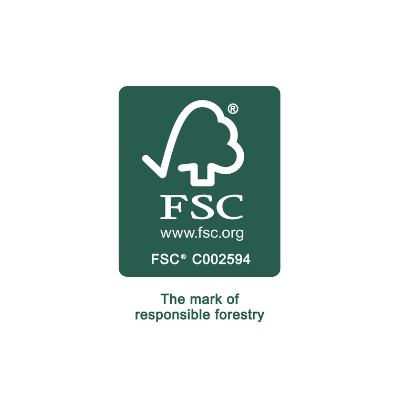
How to reduce plastic in Biological Substance Category B Transportation
Single-use plastics in the healthcare industry are a preferred choice in today’s market. Convenient, compliant, and cost-effective, their composition serves as the most bio-safe and sterile solution for medical applications.
There’s only one issue: they’re polluting our planet.
Did you know that a staggering 133,000 tonnes of waste generated by hospitals alone is plastic? Sustainability remains a challenge for the entire healthcare industry, but there are many changes we can implement to improve our plastic footprint.
When concentrating on diagnostic, screening and clinical trial practices, the challenge lies in advocating for innovative, sustainable packaging solutions. We discuss how you can improve your biological substance category B packaging for more sustainable transportation below:
Plastic use in healthcare: safety vs. sustainability
Plastic is an extremely desirable material for hospitals, laboratories, and diagnostic businesses. This is because essential industry networks can capitalise on a low-cost, easily processed, lightweight and highly sterilised base material for their consumables.
Biohazardous waste is predominately made up of single-use plastics, all of which are utilised and disposed of daily, at a colossal volume. Laboratories alone produce up to 5.5 million tonnes of plastic waste a year. This includes our diagnostics, clinical and pathology laboratories, all of which are employed to test our biological substance category B samples.
Whether it’s for disease diagnosis, forensic analysis, or research purposes, the sample collection kit and its packaging will heavily employ single-use plastics for added security, safety assurance, and regulatory adherence, with the sterility of such materials mitigating all contamination risks.
The reality is, however, we’re simply too reliant on these non-reusable, non-recyclable materials.
Plastic overuse has become an increasingly recognised issue. In the UK, the government has pledged to eliminate all avoidable plastic waste by 2042. Food packaging, plastic straws, carrier bags and other items are the first on the agenda, however, plastic use in healthcare falls under this 25-Year Environment Plan.
Motivated by government initiatives, more and more healthcare businesses are looking to meet sustainability commitments and help reduce their plastic pollution.
How to boost the sustainability of your plastic packaging
Can we remove the plastic from the diagnostic, clinical and screening market? Unfortunately, no. However, we can fight against single-use plastic pollution in several ways, one of which is a newfound attention to more sustainable sample transportation packaging. Mindful practices include:
Find packaging solutions with reduced packaging designs
We understand that the market is saturated with single-use plastics because of their cost-effectiveness, convenience, and regulatory compliance. This is exactly why the R&D team sought to develop a solution that identifies a unique equilibrium between UN3373 compliance, low cost, and plastic reduction.
It’s as simple as making a component swap within your sample collection kits that could significantly improve your plastic footprint. Replacing your traditional urine collection device with the RDi safe2Pcanter for example, can reduce your plastic use by up to 95%. Our sustainable design includes a plastic pouch enclosing 1gm LDPE, far lower than the standard 13gm LDPE – 19gm LDPE seen within competitor products.
Swapping out your secondary packaging for RDi’s safeTpouch – which uses 73% less plastic than competitor products on the market – serves as a fully compliant, reduced-cost 95kPa and standard packaging solution for your biological specimens.

Prioritise packaging providers that advocate for sustainability
Ultimately, the sustainability of your sample collection kits stems from your supply. The value of a strategic partnership with a more sustainable supplier will naturally improve your plastic footprint, with minimal effort on your part.
RDi works closely with stakeholders and executives across a range of healthcare organisations to ensure that our services and products continue to evolve to align with reduced plastic and more sustainable practices.
Moving beyond our packaging design expertise, our end-to-end manufacturing, production, and supply chain services offer a convenient one-stop solution for your entire sample collection fulfilment needs.
By entrusting your entire production process to a single provider such as RDi, you can benefit from a more sustainable approach that guarantees precise stock management and minimal waste, whilst eliminating unnecessary transportation between multiple suppliers.

Select customised packaging
Many current packaging solutions on the market encompass oversized, generic sizes to accommodate a wide scope of applications.
Employing customised packaging specifically tailored to meet the needs of your biological substance Category B samples is one of the most successful ways to avoid plastic overuse.
RDi are redefining biological substance Category B packaging through its custom capabilities. Our award-winning product range can be tailored to your bespoke requirements, sizes and dimensions. Whilst reducing excessing material use, outside of our reduced plastic designs, we can work to prioritise recyclable materials where necessary.
A packaging prototype of your more sustainable solution can be designed within as little as one hour and can be sent for delivery the very next day, at zero cost.

Make a step towards sustainable healthcare with RDi
Reviewing and embracing eco-conscious packaging alternatives is vital for more sustainable transportation of your biological substance Category B samples.
To receive your free prototype of your plastic-reduced packaging, get in touch with RDi.




